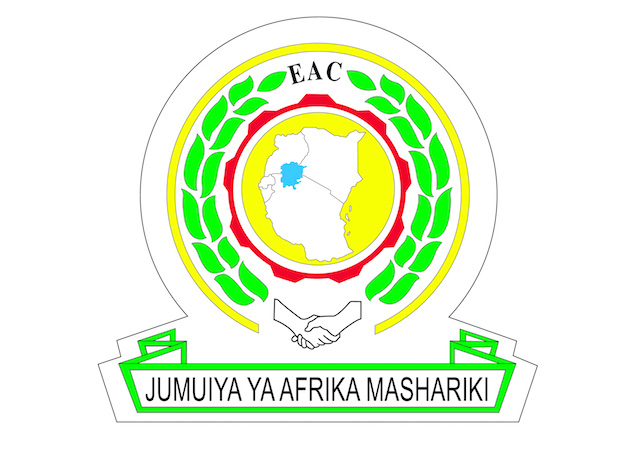
EAC workshop on enhancing participation of women in African Continental Free Trade Area opened on Monday
East African Community Headquarters, Arusha, Tanzania, 30th August, 2021: A two-day East African Community (EAC) workshop aimed at enhancing the participation of women in the African Continental Free Trade Area (AfCFTA) opened on Monday.
Speaking during the opening session of the workshop, the EAC Deputy Secretary General in charge of the Productive and Social Sectors, Hon. Christophe Bazivamo, said that traders in Africa especially women, youth and SMEs face significant challenges when attempting to benefit from multilateral and regional trade agreements as many trade agreements do not include their specific needs and concerns.
Hon. Bazivamo, who represented the EAC Secretary General, said that the goal of the EAC was to ensure that women in the region were fully equipped and capable of accessing and exploiting the numerous opportunities and benefits that accrue from the AfCFTA initiative, adding that the continental free trade area provides significant business opportunities for the region.
“In EAC, the AfCFTA will allow our people to access a large continental market and increase EAC export to African countries outside the region. It twill also improve movement of people across Africa, advance trade and development aspirations and ultimately put the region in a better position to trade more with the rest of the world,” said Hon. Bazivamo.
The Deputy Secretary General disclosed that the EAC had initiated a number of steps towards the implementation of the AfCFTA Agreement.
“We have now almost finalized the submission of our tariff offers which conform to the agreed modalities in addition to the schedules of liberalization of trade in services. We have also prepared a draft strategy for the implementation of the Agreement, which takes into account the need for capacity building. It is presently under consideration by the Partner States,” said Hon. Bazivamo.
“Further, we are also fully involved in negotiations on the outstanding areas such as Rules of Origin, Trade in services as well as the phase II issues on investment, competition, intellectual property rights and e-commerce,” he added.
On his part, the EAC Director General for Customs and Trade, Mr. Kenneth Bagamuhunda, said that women own approximately 40% of businesses in the EAC region.
Mr. Bagamuhunda, however, noted that women traders face various challenges including limited market knowledge, low access to capital and credit, limited access to information, limiting cultural practices, attitudes and beliefs and low levels of education.
Mr. Bagamuhunda said that the expectations of the EAC were that AfCFTA would result in, among other things, lowering of business costs, promote local content and provide a platform for settlement of disputes.
The DG said that EAC would leverage on its existing trade environment to promote women’s participation in the AfCFTA, namely: regional customs and trade instruments; interconnectivity of systems including customs and other border clearance agencies; One Stop Border Posts; national Trade Information Portals; simplified trade regimes; trade exhibitions and symposia, and; expansion of the EAC especially the anticipated admission of DRC into the Community.
DG Bagamuhunda said that the EAC was currently operationalising a framework for affirmative trade development through the digitalization of markets, information dissemination, showcasing the region’s products and market opportunities, and the transitioning of the dominance of women in the informal sector to the formal sector.
Speaking at the workshop, Ms. Godje Bialluch, the EAC-GIZ Cluster Coordinator, said that the German Development Cooperation (GIZ) supports the African Union, Regional Economic Communities such as the EAC as well as individual Member States in AfCFTA processes.
“This includes stakeholder engagements to ensure that the private sector and especially women are participating in and contribute to the AfCFTA processes,” said Ms. Bialluch.
Ms. Bialluch hailed the EAC Secretariat for taking positive steps in the promotion of gender equality and empowerment of women in the region, for instance, by adopting the EAC Gender Policy in 2018, adding that GIZ, adding that her organisation was now taking the next step towards gender mainstreaming in the AfCFTA.
Ms. Bialluch observed that there had been considerable progress in the EAC region on the AfCFTA with input from GIZ.
“So far, a joint offer for Trade in Goods and an initial offer for Trade in Service have been developed and submitted to the AU Commission. Capacity building in EAC Partner States with regards to the AfCFTA has been facilitated on a request basis,” said Ms. Bialluch.
She disclosed that GIZ was currently planning to support non-state actors in two lighthouse projects on AfCFTA.
“Both shall strengthen commitments in EAC Partner States to incorporate gender considerations in the implementation of national trade policies to correspond with the AfCFTA,” she said.
Ms. Bialluch said that the main activities in these projects would be to conduct a gender analysis of regional but also of national trade policies, to create awareness and build capacity of women, and to provide policy advocacy for addressing structural barriers to women’s cross border trade.
Notes to Editors:
The objective of the workshop, which runs from 30th to 31st August, 2021, is to consider strategies for enhancing women participation and mainstreaming gender in the implementation of the AfCFTA. The workshop has been organised by EAC in collaboration with GIZ, the German Development Cooperation agency.
Participants at the workshop include representatives from the African Union Commission, AfCFTA Secretariat, East African Legislative Assembly, East African Business Council, East African Women in Business Platform, ITC SheTrades, and UNWomen, Development Partners, private sector from EAC Partner States, civil society organisations in particular women associations.
For more information, please contact:
Simon Peter Owaka
Senior Public Relations Officer
Corporate Communications and Public Affairs Department
EAC Secretariat
Arusha, Tanzania
Tel: +255 768 552087
Email: sowaka [at] eachq.org
About the East African Community Secretariat:
The East African Community (EAC) is a regional intergovernmental organisation of six Partner States, comprising Burundi, Kenya, Rwanda, South Sudan, Tanzania and Uganda, with its headquarters in Arusha, Tanzania.
The EAC Secretariat is ISO 9001: 2015 Certified
